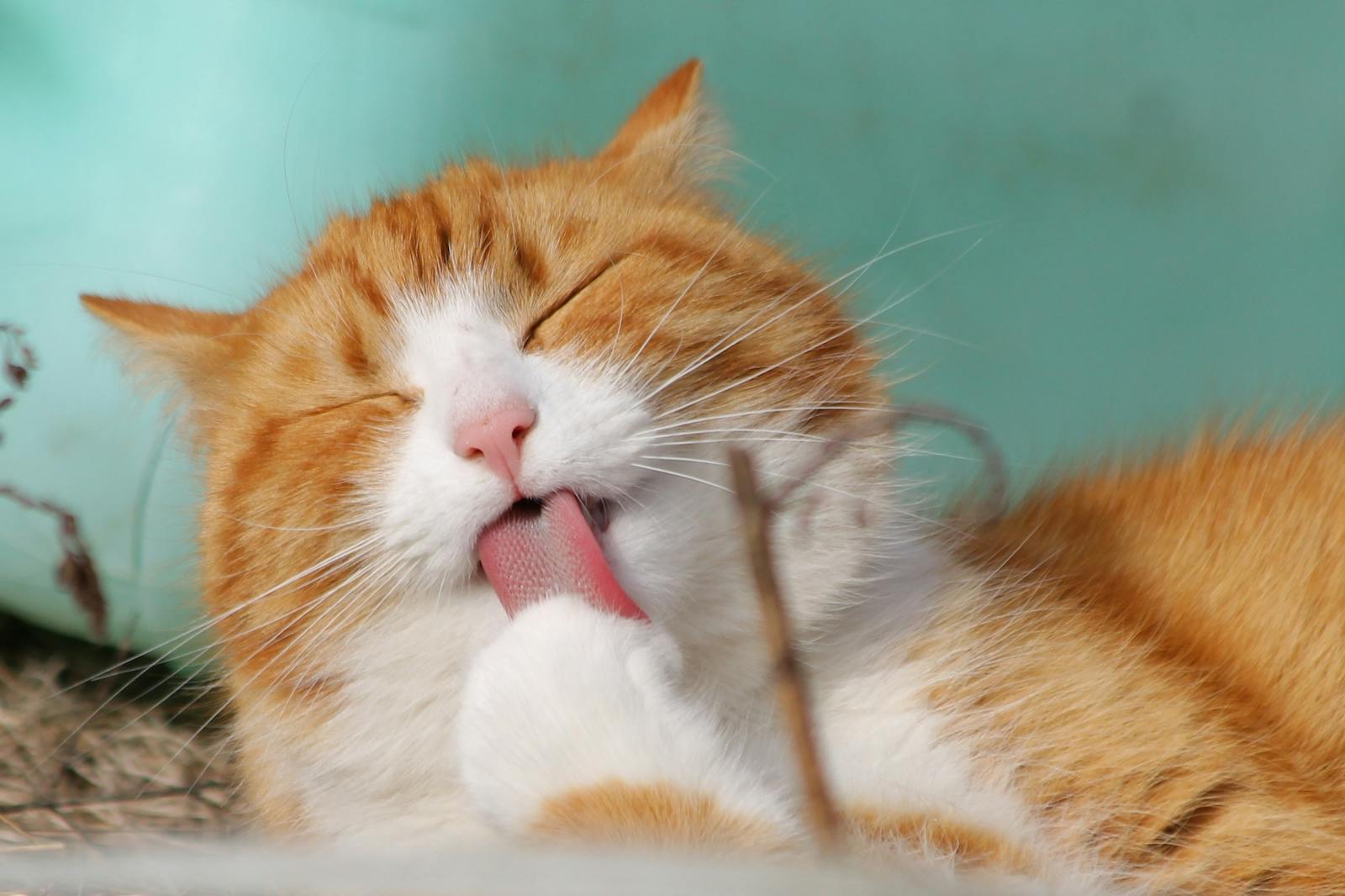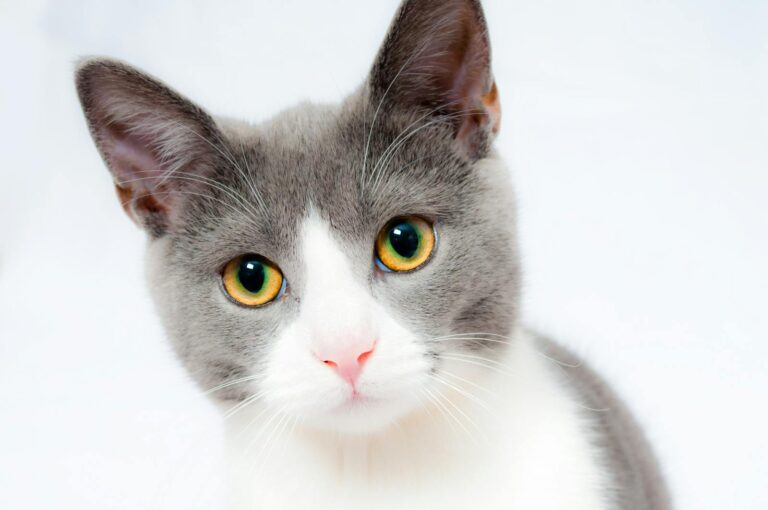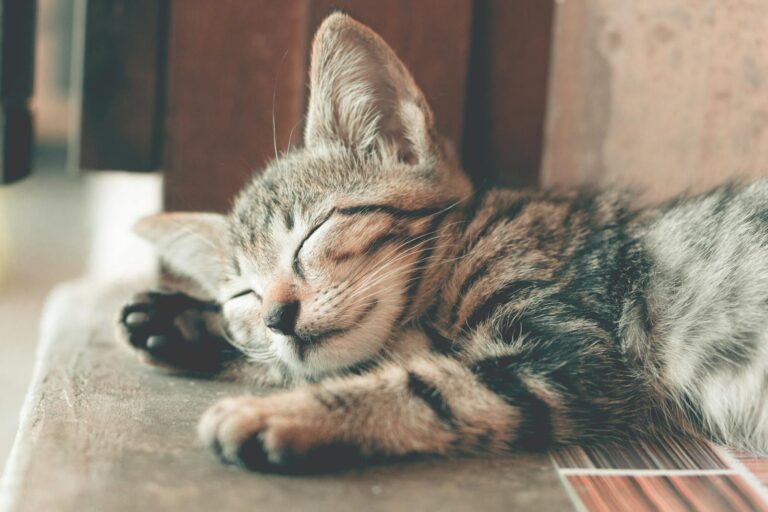Sensitive Stomach? Discovering the Best Cat Foods for Digestive Health
Sensitive Stomach? The Best Cat Foods for Digestive Health. If your feline friend suffers from digestive issues, finding the right food can be a daunting task. This article will guide you through understanding your cat’s sensitive stomach and how to choose foods that support their digestive health effectively.
Understanding Feline Digestive Sensitivity
Understanding a cat’s digestive sensitivity is crucial, not only for keeping them healthy but also for ensuring their overall well-being. Cats are obligate carnivores, which means their bodies are designed to thrive on a meat-rich diet. However, various factors can lead to digestive issues in felines, including food allergies, intolerances, and other underlying health conditions.
What Causes Digestive Sensitivity in Cats?
Digestive sensitivity can manifest as vomiting, diarrhea, constipation, or flatulence. Several factors contribute to these issues:
- Dietary Choices: A sudden change in diet can cause digestive upset. Cats have sensitive stomachs, so introducing new foods gradually is essential.
- Food Allergies and Intolerances: Just like humans, cats can develop allergies or intolerances to certain ingredients. Common culprits include dairy, soy, corn, and even specific meats.
- Stress and Environment: Stressful situations such as moving homes, changing family dynamics, or new animals can affect a cat’s digestion. Cats are creatures of habit and can react negatively to changes.
- Health Conditions: Gastrointestinal diseases, pancreatitis, or infections can contribute to a cat’s digestive sensitivity. Regular check-ups with a veterinarian are vital for maintaining feline health.
Signs Your Cat May Have Digestive Sensitivity
Understanding the signs of digestive sensitivity in cats is key to taking appropriate action. Here are some indicators to watch for:
- Frequent Vomiting: Occasional hairballs are normal, but frequent vomiting could indicate a problem.
- Changes in Stool Consistency: Diarrhea or hard stools can both signal digestive issues.
- Appetite Changes: A sudden increase or decrease in appetite should be noted, particularly if it’s accompanied by digestive symptoms.
- Weight Loss or Gain: Unexplained fluctuations in weight can be a significant indicator of digestive problems.
Addressing these symptoms promptly can help prevent more serious health issues and improve your cat’s quality of life.
The Role of Diet in Digestive Health
A proper diet is integral to managing digestive sensitivity in cats. The right combination of nutrients can promote gut health, enhance nutrient absorption, and minimize gastrointestinal stress. When selecting food for your cat, it is vital to consider their individual needs, preferences, and any sensitivities they may have.
Key Ingredients to Look for in Cat Food for Sensitive Stomachs
When you’re searching for the right cat food to ease digestive sensitivity, it’s important to focus on specific ingredients that cater to your pet’s unique needs. Here are the key ingredients to look for:
High-Quality Proteins
Proteins are the building blocks of a cat’s diet, and high-quality sources are essential for their health.
- Animal-Based Proteins: Cats thrive on animal-based proteins. Look for whole meats or meat meals (such as chicken meal or fish meal) listed as the primary ingredient. These provide the amino acids necessary for muscle development and metabolism.
- Single Protein Sources: For sensitive cats, single protein sources can reduce the likelihood of allergic reactions. Choosing foods with either chicken, turkey, or fish, and avoiding mixed protein formulas can help pinpoint any food sensitivities.
Easily Digestible Carbohydrates
While cats require protein, they also need carbohydrates for energy. However, the type of carbohydrate is critical.
- Low Glycemic Index Carbs: Choose cat food that includes low-glycemic index ingredients such as pumpkin or sweet potato. These carbohydrates help maintain steady energy levels without causing spikes in blood sugar.
- Grain-Free Options: Some cats are sensitive to grains like wheat and corn. Grain-free diets often use alternative carbohydrates such as peas or lentils, making them gentler on the digestive system.
Probiotics and Prebiotics
Probiotics and prebiotics play an essential role in gut health.
- Probiotics: These beneficial bacteria help maintain a balanced gut flora. Look for cat foods that contain live probiotics, which can enhance digestion and improve stool quality.
- Prebiotics: Ingredients like chicory root and beet pulp serve as food for probiotics, fostering their growth and activity in the digestive tract.
Including these types of ingredients can significantly improve your cat’s digestive health and overall well-being.
Omega Fatty Acids
Healthy fats are crucial for a cat’s skin and coat health, but they also support digestion.
- Fish Oil: Rich in Omega-3 fatty acids, fish oil can reduce inflammation in the digestive tract and improve overall gut health.
- Balanced Omega-6 Fatty Acids: These are essential for hormone production and immune function. A good balance between Omega-3 and Omega-6 fatty acids promotes optimal digestion.
Selecting foods that are fortified with these beneficial nutrients can help your sensitive cat feel their best.
Top-Rated Cat Food Brands for Digestive Health
Finding the right brand of cat food can be overwhelming given the multitude of options available. Fortunately, several brands are renowned for their commitment to producing high-quality, digestively friendly cat food. Here are some top-rated options:
Hill’s Science Diet
Hill’s Science Diet is known for its veterinary-approved formulations designed for specific health concerns.
- Sensitive Stomach Formulas: Their sensitive stomach line contains easily digestible ingredients, vitamins, and minerals, ensuring optimal nutrition without upsetting the stomach.
- Variety of Flavors: With options like chicken and vegetable stew, Hill’s provides appealing choices for picky eaters while maintaining digestive health.
Royal Canin
Royal Canin has established a solid reputation for producing specialized diet formulas tailored to a variety of breeds and sensitivities.
- Gastrointestinal Care: Their gastrointestinal care products are specifically formulated to manage digestive issues, featuring prebiotics and easily digestible proteins.
- Tailored Nutrition: Royal Canin offers breed-specific formulas that address the unique digestive needs of different cats, ensuring a well-rounded approach to feeding.
Purina Pro Plan
Purina Pro Plan emphasizes research-backed formulations aimed at promoting overall health and wellness.
- Focus on Sensitive Stomachs: Their sensitive skin and stomach formula combines high-quality protein with a blend of antioxidants, vitamins, and minerals to enhance digestion.
- Real Meat as First Ingredient: Purina Pro Plan ensures real meat is the first ingredient in many of its recipes, providing essential nutrients for your cat’s health.
Blue Buffalo
Blue Buffalo prides itself on using natural ingredients free from artificial preservatives and fillers.
- Limited Ingredient Diets: Their limited ingredient line is designed for cats with food sensitivities, featuring a minimal number of select ingredients that are easy on the stomach.
- LifeSource Bits: These specially formulated kibble bits provide a precise blend of vitamins and minerals alongside essential fatty acids for overall health.
When choosing a cat food brand, consider your cat’s preferences, dietary needs, and potential food sensitivities to find the best fit.
Ingredients to Avoid in Cat Food for Sensitive Stomachs
While knowing what to include in your cat’s diet is essential, equally important is understanding what to avoid. Certain ingredients can exacerbate digestive issues and should be excluded from sensitive stomach cat foods.
Fillers and By-products
Many commercial cat foods contain fillers and by-products that offer little nutritional value.
- Corn and Wheat: These cheap fillers can be difficult for cats to digest and may lead to gastrointestinal upset. Instead, opt for grain-free options that utilize better carbohydrate sources.
- Meat By-products: Ingredients labeled as “meat by-products” may come from unspecified sources and can vary widely in quality. Always choose named meat sources for clarity on what your cat is consuming.
Artificial Additives
Artificial colors, flavors, and preservatives can negatively impact your cat’s digestive health.
- Chemical Preservatives: Ingredients such as BHA, BHT, and ethoxyquin are synthetic preservatives that can contribute to digestive issues and long-term health risks.
- Artificial Flavors and Colors: These additives serve no nutritional purpose and can potentially trigger allergic reactions in sensitive cats.
Certain Proteins
Some protein sources can aggravate existing sensitivities or allergies in cats.
- Dairy Products: Many adult cats are lactose intolerant, making dairy products a poor option for those with sensitive stomachs.
- Uncommon Proteins: Ingredients like lamb or rabbit might sound appealing, but if those proteins are unfamiliar to your cat, they could provoke a digestive response.
Being aware of these harmful ingredients can help you make informed decisions when selecting cat food that supports your cat’s digestive health.
Transitioning Your Cat to a Digestive-Friendly Diet
Transitioning your cat to a new diet requires patience and planning. A sudden change can lead to further digestive upset, so it’s important to take gradual steps to ensure a smooth transition. Here’s how to do it effectively:
Gradual Introduction
The key to successfully transitioning your cat’s diet is to introduce the new food slowly.
- Start with Mixing: Begin by mixing 25% of the new food with 75% of the current food. Monitor your cat’s reaction during this initial phase.
- Progress Over Time: Each few days, increase the proportion of new food while decreasing the old food until you reach a complete switch to the new diet. Typically, a full transition takes about 7-10 days.
Monitoring for Sensitivities
As you introduce new food, pay close attention to any changes in your cat’s behavior or digestive health.
- Watch for Symptoms: Keep an eye out for any signs of discomfort, such as vomiting, diarrhea, or lethargy. If any severe reactions occur, consult your veterinarian.
- Adjust Accordingly: If your cat shows signs of unease, slow down the transition process or revisit your choice of food altogether.
Creating a Positive Experience
Creating a positive association with the new food can make the transition easier and more enjoyable for your cat.
- Serve at Regular Times: Establishing a feeding schedule can help your cat anticipate mealtimes, minimizing resistance to the new food.
- Encourage Exploration: Allow your cat to sniff and get familiar with the new food. You can even sprinkle a bit of their favorite treats on top to entice them.
Successfully transitioning your cat to a more suitable diet tailored for their sensitive stomach will ultimately promote their digestive health and enhance their quality of life.
Managing Digestive Issues in Cats: Beyond Diet
While diet plays a pivotal role in managing digestive sensitivity, there are additional strategies to help support your cat’s overall digestive health.
Hydration Matters
Proper hydration is essential for maintaining a healthy digestive system.
- Access to Fresh Water: Ensure your cat has constant access to clean drinking water. Dehydration can exacerbate digestive issues, leading to constipation and urinary problems.
- Wet Food Benefits: Incorporating wet food into your cat’s diet can increase their water intake, aiding digestion and preventing dehydration.
Regular Vet Check-Ups
Routine veterinary visits are critical for monitoring your cat’s health.
- Preventive Care: Regular check-ups allow for early detection of potential health issues, including digestive problems. Your veterinarian can recommend appropriate tests if necessary.
- Tailored Advice: Consult your vet about your cat’s specific dietary needs. They can provide valuable insights and recommendations based on your cat’s health history.
Stress Management
Managing stress in your cat is vital for ensuring their digestive health.
- Safe Spaces: Create a calm environment where your cat feels safe and secure. Consider providing cozy hideaways or elevated spaces where they can retreat when feeling anxious.
- Play and Enrichment: Engaging your cat in regular playtime helps reduce stress levels and promotes healthy digestion through physical activity.
By addressing hydration, veterinary care, and stress management, you can create a holistic approach to supporting your cat’s digestive health beyond diet alone.
Conclusion
In conclusion, managing a cat with a sensitive stomach involves a multifaceted approach that starts with understanding their unique digestive needs. By selecting the right ingredients, focusing on high-quality cat food brands, and being mindful of harmful additives, you can facilitate better digestive health for your feline friend. Transitioning to a digestive-friendly diet should be done gradually and carefully, as well as considering other aspects such as hydration and stress management. Ultimately, providing your cat with the best nutrition and care will enhance their quality of life and keep their sensitive stomach happy.







